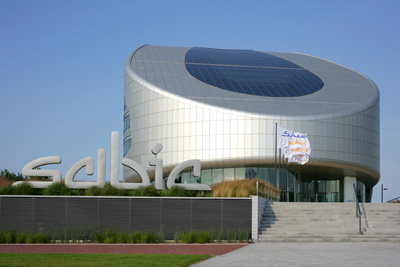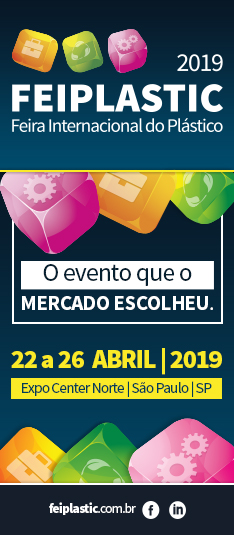| Plastics News |
SABIC signs memorandum of understanding with Plastic Energy for supply of recycled feedstock
December 4, 2018 - SABIC, a global leader in the chemical industry, has today announced it has signed a memorandum of understanding (MoU) with UK-based Plastic Energy Ltd., a pioneer in chemical plastics recycling, for the supply of feedstock to support Sabic’s petrochemical operations in Europe. Sabic and Plastic Energy intend to build a first commercial plant in the Netherlands to refine and upgrade a valuable feedstock, known as Tacoil, a patented Plastic Energy product, which will be produced from the recycling of low quality, mixed plastic waste otherwise destined for incineration or landfill . The plant, which is anticipated to enter commercial production in 2021, is a significant milestone for Sabic towards the company’s commitment to establishing a circular economy and, more broadly, its sustainability goals. “Sustainability is a core value at Sabic and the circular economy is a cornerstone of our strategy as evidenced by this unique agreement”, said Frank Kuijpers, General Manager for Corporate Sustainability at Sabic. “Sabic is proud to be the first petrochemical company to implement a project for the chemical recycling of challenging plastic waste into feedstock for steam crackers. This exciting project is testament to our commitment to scale up advanced chemical recycling processes of plastics back to the original polymer.” “We are delighted to be working with Sabic on this exciting project to support their petrochemical operations in Europe”, said Carlos Monreal, Founder and CEO of Plastic Energy. “We have already two industrial plants in Spain operating 24/7 and a technology team with more than 10 years of experience developing this patented technology. Our advanced expertise will promote this new opportunity to turn plastic back into plastic, as part of the circular economy.” Plastic Energy has successfully commercialised a patented thermochemical conversion technology to convert a wide range of end-of-life, dirty and contaminated plastics, hardly recyclable for conventional processes, into usable feedstock. Plastics are melted in an oxygen free environment and then broken down into synthetic oils at which point the oils need to be refined and upgraded as feedstock for traditional petrochemical uses. Sabic is a global leader in diversified chemicals headquartered in Riyadh, Saudi Arabia. The company manufactures on a global scale in the Americas, Europe, Middle East and Asia Pacific, making distinctly different kinds of products: chemicals, commodity and high performance plastics, agri-nutrients and metals. Sabic's customers are present end markets such as construction, medical devices, packaging, agri-nutrients, electrical and electronics, transportation and clean energy. Sabic recorded a net profit of US$ 4.9 billion in 2017. Sales revenues for 2017 totaled US$ 39.9 billion. Total assets stood at US$ 86 billion at the end of 2017. Production in 2017 stood at 71.2 million metric tons. Sabic has more than 34,000 employees worldwide and operates in more than 50 countries. The company has 11,534 global patent filings, and have significant research resources with innovation hubs in five key geographies – USA, Europe, Middle East, South Asia and North Asia. The Saudi Arabian government owns 70 percent of Sabic shares with the remaining 30 percent publicly traded on the Saudi stock exchange. Plastic Energy is in the forefront of the use and development of new technologies to transform traditionally non-recyclable plastic waste into hydrocarbon products and back into plastic, moving to a low-carbon circular economy with its two commercial plants in Spain. It claims to be the only company worldwide that has sold millions of litres of oils from plastic waste using patented technology. The company uses chemical recycling to process non-recyclable End of Life Plastics (ELP) from domestic, industrial or agricultural wastes. Source: Sabic |


